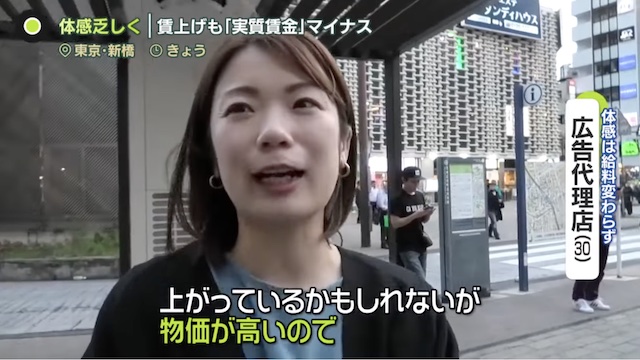TOKYO, Jun 06 (News On Japan) - The wage gap between men and women in Japan shows no signs of narrowing, with women earning about 25% less than men. As the government attempts to address the issue, some companies are working to improve the treatment of female employees.

Japan's Ministry of Health, Labour and Welfare announced on Wednesday the average salary for April this year was 296,884 yen per person, an increase of about 2% compared to the same month last year. However, real wages, which reflect price changes, have decreased for the 25th consecutive month compared to the previous year.
Meanwhile, the government’s project team released an interim report on the wage gap between men and women.
The report pointed out that Japanese women’s wages are 74.8% of men’s, a larger gap compared to major Western countries. It highlighted significant differences in years of service and management positions between men and women, as well as unconscious biases that hinder women’s success.
Amid the need for measures, 'news zero' interviewed a company promoting women’s advancement on the night of the 5th.
Kaori Abe (37) works at the family restaurant 'Gusto'. She quit her job to give birth and started working part-time at Gusto after her childrearing duties eased. Her current position is...
‘I’m now a full-time manager.’
The 'Skylark Group,' which operates Gusto, has expanded the framework for hiring women as full-time employees who wish to work full-time after childbirth and childcare.
Since 2022, they have also started hiring people in their 40s and 50s as full-time employees, many of whom were women whose childrearing and household duties had settled down.
Kaori Abe (37) working at 'Gusto': ‘(Full-time employment) is really appreciated. In the store where I became a manager, I want to respect the crew and create an environment where everyone, including women, can thrive.’
The government’s project team emphasizes that it is important for companies to support work-life balance and improve the treatment of non-regular workers to eliminate the wage gap between men and women.
Source: 日テレNEWS














